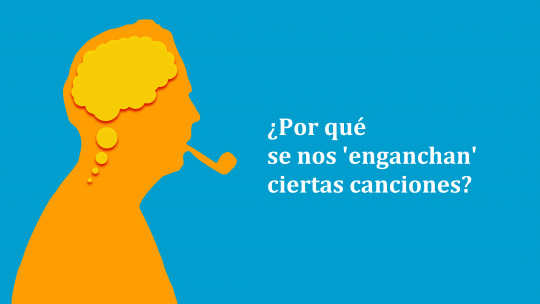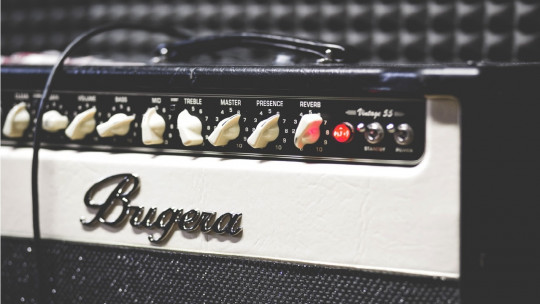
You leave the house, you take your cell phone, your wallet, your keys and, luckily, you haven’t forgotten your headphones. To go to the supermarket this morning you want to listen to the latest news from your favorite artists, to go to university you put on some of your most upbeat playlists and for that long train ride you will listen to a record that relaxes you. Music accompanies us throughout our lives, in different everyday moments and with a variety of emotions and sensations.
We listen to music to feel a specific emotion, to evoke a memory, simply to pass the time or, on the contrary, because we are experiencing an emotion that requires the effect of a song to cope with it. It is very common, for example, to turn to music when we experience nerves or anxiety, to take refuge in a melody that relaxes us and gives us rest.
Do you know what the most relaxing song in the world is? It is evident that each person has specific personal tastes and our favorite artists and musical genres. But, from science, scientific studies have been carried out to know the neuronal, hormonal and physical effect of listening to different songs considered relaxing. One of them has thus taken the title of “Most relaxing song in the world”.
In this article, we will see which song has such a relaxing effect, also reflecting on the ability of music to calm our emotions and sensations and provide us with well-being when we need it most.
Why does music relax us?
Before discovering what the so-called “most relaxing song in the world” is, let’s reflect on the way in which music interacts and modulates our emotions, feelings and sensations. Music’s ability to induce emotional states has been the subject of fascination and study for decades Different researchers have thoroughly explored how music can impact our emotions and, in particular, why certain genres, melodies, or even artists, have the power to relax us to a greater extent than others. Music has the unique ability to modulate our physiological and neurochemical responses.
Different research carried out over time suggests that music has the ability to offer an effective alternative to anxiolytic and sedative medications in some specific cases. In fact, in many medical institutions, they have begun to introduce music as a relaxing component before a stressful medical test such as an MRI or a small surgical intervention without sedation. This highlights the key role of music in managing stress and anxiety and how it is important to include it in treatments and centers aimed at health and well-being.
From a neuroscientific perspective, it is known that music has the ability to affect neural connections and activate specific areas of the brain related to emotions. Soft sounds and slow melodies have the ability to decrease the activity of the sympathetic nervous system, responsible for the “fight or flight” response, while increasing the activity of the parasympathetic nervous system, which is associated with relaxation and restoration.
In addition, music can also influence the release of specific neurotransmitters such as dopamine and serotonin, known for their role in emotional well-being. This explains why certain chords and harmonies can have a direct effect on our mood, leading us to a state of calm and serenity. In summary, as we have been discussing since the beginning of this article, music acts as a powerful emotional modulator, affecting our physiological and chemical responses in ways that go beyond simple aesthetic appreciation. Understanding these mechanisms brings us closer to deciphering the enigma of why certain compositions have the unique ability to relax us and relieve stress in our daily lives.
What makes a relaxing song?
The ability of a song to relax us can be random and dependent on each person’s tastes. However, thanks to science and neurobiological research, different factors have been identified that make it easier to understand the relaxing potential of songs that have this capacity. Thus, it can be said that the relaxation we experience when listening to a relaxing song is due to a specific and complex combination of carefully combined elements that directly affect our emotional and physiological responses.
1. Rhythm speed
The speed of the beat is a crucial factor. Songs with slow rhythms, marked by a leisurely tempo, tend to induce a feeling of calm This characteristic, supported by studies in the field of musical psychology, suggests that our body tends to synchronize with the rhythm, slowing down the heart rate and promoting a state of relaxation.
2. Harmony and tonality
Harmony and tonality also play a fundamental role. Soft chords and simple harmonic progressions contribute to a listening experience that feels smooth and calm. Sounds that imitate nature, such as the murmur of water or the rustle of the wind, have also been shown to have relaxing effects possibly due to the association of these sounds with peaceful environments.
3. Melodic simplicity
Melodic simplicity is another key component. Simple and repetitive melodies have the power to capture our attention in a relaxed way, without provoking intense emotional responses. When a melody manages to engross us and we do not have to activate our mind to pay attention to it and process it, it probably has a high relaxing potential. This gentle musical approach allows our mind to immerse itself in the music effortlessly creating an environment conducive to relaxation.
The most relaxing song in the world
The time has come to talk about what is, in the words of science, the most relaxing song in the world. Times magazine named Marconi Union, a British band, as “Inventors of the Year” in 2011 for their composition “Weightless”; the most relaxing song in the world. Marconi Union is a three-piece ambient music group formed in 2003 in Manchester. Ambient music is mainly characterized by the use of mainly electronic musical instruments, focusing on the tone and atmosphere that is generated rather than on the musical structure or rhythm. In general, ambient music compositions are long, compared to popular music or music played on the radio, and it has been classified as minimalist music, “as easy to ignore as it is to pay attention.”
And “Weightless,” the most relaxing song in the world, was written explicitly to be so. The 8-minute song was made in collaboration with Lyz Cooper, founder and director of the British Academy of Sound Therapy. This composition masterfully combines the musical elements discussed above. With a slow, steady tempo, the melody flows gently, guiding the listener into a state of calm The choice of instruments and ambient sounds, such as soft bells and ethereal chords, contributes to a listening experience that evokes tranquility and serenity.
In an investigation to understand the relaxing potential of different songs, different compositions were compared. In addition to “Weightless,” Adele’s “Someone Like You,” Coldplay’s “Strawberry Swing” and Enya’s “Watermark,” among many others, were studied. This study concluded that “Weightless” had a greater relaxation capacity, but it also exceeded the state of relaxation that a massage would have by up to 6%, something not achieved by any other song in this study.
Once the relaxing potential of this composition was considered, another study published in the journal Regional Anesthesia & Pain Medicine focused on finding ways to reduce preoperative anxiety. Generally, to reduce it, sedatives and benzodiazepines such as midazolam are used In this research, they wanted to find ways to reduce this anxiety without the use of these psychopharmacological drugs. Thus, with a sample of 157 adults, half received 1-2 mg of midazolam and the other half listened to “Weighless” by Marconi Union. This study concluded that listening to this song had a relaxing capacity superior to the use of benzodiazepines.
An introduction to music therapy
Music’s ability to influence our emotions and moods has led to the development of a discipline known as music therapy. This practice uses music as a therapeutic tool to address a variety of emotional, cognitive, and social needs in individuals of all ages. Music therapy is not only based on passive listening to relaxing music, such as the aforementioned “Weightless”, but also involves the active participation of the individual in musical activities led by a qualified therapist These activities may include playing instruments, singing, composing or improvising music.
Music therapy has been successfully applied in clinical settings to treat conditions such as stress, anxiety, depression, and autism spectrum disorder. In addition, it has proven to be beneficial in the field of physical and cognitive rehabilitation. Music acts as a bridge that connects the mind and body, facilitating the expression of emotions that may be difficult to communicate verbally. Music therapy not only seeks to relieve symptoms, but also improve quality of life, strengthen self-expression, and foster interpersonal connection.
Conclusions
In conclusion, music has a powerful influence on our emotions and well-being. The search for the most relaxing song reveals how elements such as rhythm, melody and harmony can modulate our physiological responses. The standout “Weightless” and music therapy highlight the therapeutic potential of music, suggesting that its impact goes beyond mere aesthetic enjoyment.








